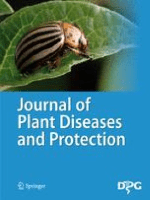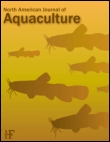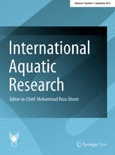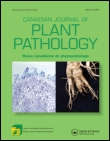
FISH PATHOLOGY
metrics 2024
Pioneering studies for a healthier aquatic ecosystem.
Introduction
FISH PATHOLOGY is a vital journal dedicated to the field of aquatic animal health, published by the Japan Society of Fish Pathology. With a strong publication history dating back to 1967, this interdisciplinary journal aims to promote high-quality research focusing on the pathologies affecting fish and other aquatic organisms. Despite its category quartiles ranking of Q3 in both Animal Science and Zoology and Aquatic Science, the journal maintains a growing presence within the scientific community, holding a respectable position in Scopus rankings. Researchers and professionals looking for deep insights into fish health management and disease pathology will find FISH PATHOLOGY to be an invaluable resource for advancing knowledge and fostering collaboration in this essential area of study. Although the journal does not currently offer open access, its comprehensive analyses and findings are crucial for both academic and practical applications in fisheries and aquaculture worldwide.
Metrics 2024
 0.32
0.32 0.60
0.60 0.70
0.70 46
46Metrics History
Rank 2024
Scopus
IF (Web Of Science)
JCI (Web Of Science)
Quartile History
Similar Journals

Phytopathology Research
Empowering scientists to enhance plant resilience.Phytopathology Research, published by SPRINGERNATURE, serves as a vital resource in the rapidly evolving fields of biochemistry, genetics, molecular biology, and plant sciences. Since adopting an open access model in 2019, this journal has fostered an inclusive approach to disseminating cutting-edge research and breakthroughs in plant pathology and related disciplines. With an impressive impact factor in the second quartile for Biochemistry, Genetics and Molecular Biology (miscellaneous) and Plant Science, and a robust standing in the Scopus rankings, it attracts high-quality contributions from researchers around the globe. The journal not only supports the academic community's quest for advanced knowledge but also plays a crucial role in addressing global agricultural challenges through innovative research. Positioned in the United Kingdom and operating with a keen focus on enhancing plant health and resistance, Phytopathology Research continues to be an essential platform for both established and emerging scientists in this vital area of study.

Turkish Journal of Fisheries and Aquatic Sciences
Advancing aquatic knowledge for a sustainable future.Turkish Journal of Fisheries and Aquatic Sciences, published by the CENTRAL FISHERIES RESEARCH INST, is a key resource in the fields of Fisheries and Aquatic Sciences, catering to a global community of researchers and professionals. With its ISSN 1303-2712 and E-ISSN 2149-181X, this journal offers an engaging platform for the dissemination of high-quality research from Turkey, covering critical topics within Animal Science and Aquatic Science. As a third quartile journal in both categories (Q3, 2023), it provides valuable insights, contributing to a growing body of literature that addresses aquatic ecosystems, fisheries management, and biodiversity conservation, thereby enhancing the sustainability of aquatic resources. The journal has shown considerable impact, ranking 144th in Animal Science & Zoology and 116th in Aquatic Science within Scopus, reflecting its relevance and credibility within the academic community. Operating from 2008 to 2024, it invites open access submissions to foster collaboration and knowledge sharing among scientists, students, and practitioners alike, reinforcing its dedication to advancing the science of aquatic ecosystems.

Journal of Plant Diseases and Protection
Pioneering Research for Sustainable AgricultureThe Journal of Plant Diseases and Protection, published by SPRINGER HEIDELBERG in Germany, is a premier platform for the dissemination of cutting-edge research in the fields of Agronomy, Horticulture, and Plant Science. With its Q2 ranking in multiple categories as of 2023, this journal stands out in the academic landscape, highlighting its strong performance with a notable Scopus rank of 22nd in Horticulture and placing in the top percentile for Agronomy and Plant Science. The journal spans from 2006 to 2024, making it a valuable resource for researchers, professionals, and students seeking to stay abreast of advancements in the understanding of plant diseases and their protection. The Open Access options further enhance its accessibility, fostering a global exchange of knowledge essential for addressing contemporary agricultural challenges.

NORTH AMERICAN JOURNAL OF AQUACULTURE
Connecting researchers and industry for aquatic excellence.North American Journal of Aquaculture, published by Wiley, is a premier resource in the field of aquatic science, dedicated to advancing knowledge and research in aquaculture practices across North America. With an ISSN of 1522-2055 and E-ISSN of 1548-8454, this journal serves as an essential platform for researchers, industry professionals, and students focusing on sustainable practices, species cultivation, and aquatic ecosystems. Notably, it ranks in the Q3 category in Aquatic Science according to the 2023 metrics, and stands at the 135th position out of 247 in the Scopus rankings for Agricultural and Biological Sciences—Aquatic Science, reflecting its contribution to the field. As the journal continues to evolve through its converged coverage from 1999 to 2024, it remains committed to disseminating impactful research while providing open access options to facilitate broad readership and engagement. The North American Journal of Aquaculture aims to inspire innovative solutions for the aquaculture sector while fostering a collaborative environment for aquatic science research.

International Aquatic Research
Illuminating the wonders of marine and freshwater environments.International Aquatic Research, published by the Islamic Azad University, Tonekabon Branch, is a vital open-access journal dedicated to advancing the field of aquatic sciences since its inception in 2009. With an ISSN of 2008-4935 and an E-ISSN of 2008-6970, the journal plays a significant role in disseminating high-quality research findings from Iran and around the globe. It covers a broad range of topics in aquatic biology, fisheries science, and marine ecology, making it a valuable resource for researchers, professionals, and students alike. As of 2023, it ranks in the third quartile (Q3) of the aquatic science category with a Scopus rank of #138 out of 247 in Agricultural and Biological Sciences, reflecting its growing influence in the field. With a commitment to promoting scientific knowledge and fostering collaboration among aquatic research communities, International Aquatic Research is positioned as an essential platform for those dedicated to understanding and conserving marine and freshwater environments.

JOURNAL OF GENERAL PLANT PATHOLOGY
Advancing the Frontiers of Plant Disease ResearchJOURNAL OF GENERAL PLANT PATHOLOGY, published by SPRINGER JAPAN KK, is a pivotal platform dedicated to the dissemination of high-quality research in the fields of agronomy and crop science, as well as plant pathology. With an ISSN of 1345-2630 and an E-ISSN of 1610-739X, this journal plays a significant role in advancing our understanding of plant diseases and their management, particularly within the context of sustainable agriculture. Currently ranking in the Q3 quartile for both Agronomy and Crop Science as well as Plant Science, it showcases a diverse array of articles that encompass fundamental research, innovative methodologies, and practical applications to address contemporary challenges in these fields. Researchers and professionals seeking to enhance their knowledge and stay abreast of the latest findings will find the JOURNAL OF GENERAL PLANT PATHOLOGY an invaluable resource. Operating without Open Access, it still ensures wide accessibility through institutional subscriptions and comprehensive digital archiving, with a commitment to excellence from its inception in 2001 through its ongoing developments into 2024.

BOLETIM DO INSTITUTO DE PESCA
Empowering knowledge in marine and freshwater biology.BOLETIM DO INSTITUTO DE PESCA, published by the Instituto Pesca, is a Brazilian journal dedicated to advancing the fields of Animal Science and Aquatic Science. With its Open Access policy adopted in 2008, the journal ensures that research is widely disseminated, fostering collaboration and innovation among researchers, professionals, and students alike. Despite its recent Q4 category rankings in the 2023 metrics for both disciplines, the journal plays a vital role in providing a platform for emerging studies and critical discussions related to aquatic ecosystems and fisheries management. Covering a wide range of topics within its scope, BOLETIM DO INSTITUTO DE PESCA publishes original research, reviews, and case studies, stimulating academic dialogue and contributing to the sustainable management of aquatic resources in Brazil and beyond. This journal is an essential resource for anyone invested in marine and freshwater biology, ecology, and conservation.

Journal of Ecohydraulics
Exploring the synergy of water science and environmental management.The Journal of Ecohydraulics, published by Taylor & Francis Ltd, stands as a premier platform for interdisciplinary research, merging the disciplines of civil engineering, water science, and environmental management. With an ISSN of 2470-5357 and an E-ISSN of 2470-5365, this esteemed journal, based in the United Kingdom, has been recognized within the top quartile (Q1) in both Civil and Structural Engineering and Water Science and Technology categories. Its impactful research, reflected in its notable Scopus rankings—#40 out of 261 in Environmental Science and #69 out of 379 in Engineering—underscores its vital role in advancing knowledge and addressing the critical challenges posed by the interaction of ecological and hydraulic systems. The journal invites contributions that explore innovative methodologies and sustainable practices relevant to ecohydraulics, fostering a robust dialogue among researchers, professionals, and students interested in the sustainable management of aquatic and terrestrial environments.

CANADIAN JOURNAL OF PLANT PATHOLOGY
Exploring the vital connections between plants and their environment.Canadian Journal of Plant Pathology, published by Taylor & Francis Inc, is a leading academic journal dedicated to advancing the field of plant pathology, with a significant focus on the interplay between plant health and environmental factors. Established in 1979, this journal has established a reputation for high-quality research, currently holding a commendable impact factor within its category. As of 2023, it ranks in the Q2 quartile for both Agronomy and Crop Science as well as Plant Science, highlighting its importance and influence in these domains. With an impressive ranking of 142/516 in Plant Science and 115/406 in Agronomy and Crop Science according to Scopus, the journal is positioned within the 72nd and 71st percentiles, respectively. The Canadian Journal of Plant Pathology serves as a vital platform for researchers, professionals, and students aiming to contribute to the understanding of plant diseases, fostering innovation and development in agricultural practices.

Porcine Health Management
Connecting knowledge and practice in porcine health.Porcine Health Management is an esteemed open-access journal published by BMC, focusing on the critical intersection of veterinary science and animal husbandry with a particular emphasis on swine health. Since its inception in 2015, the journal has established itself as a leading platform for disseminating cutting-edge research, earning a prominent position in the field with a 2023 category ranking of Q1 in Animal Science and Zoology, Food Animals, and Small Animals. With a strong impact factor indicative of its quality and relevance, the journal serves as an essential resource for researchers, practitioners, and students dedicated to advancing knowledge in swine health management. It is hosted in the United Kingdom and operates under transparent open-access guidelines, providing broad accessibility to vital research findings that drive innovation in animal health practices. As the field continues to evolve, Porcine Health Management remains at the forefront, contributing to the welfare and productivity of food animals.